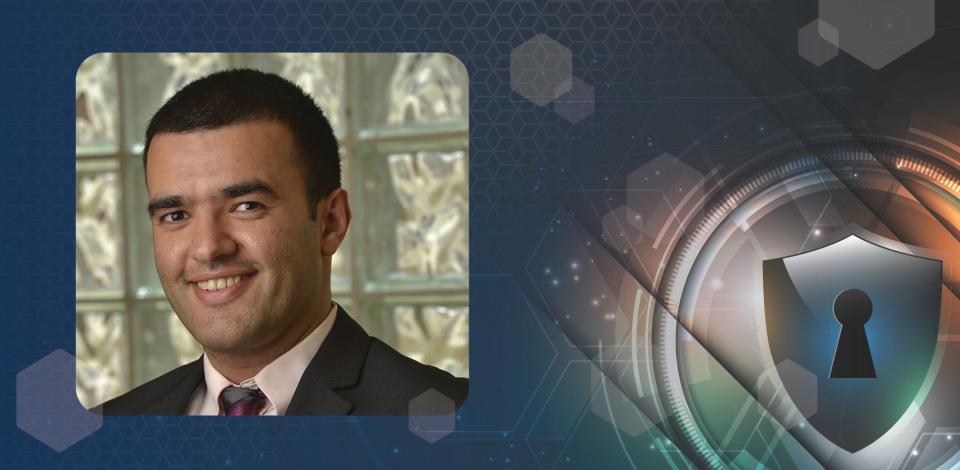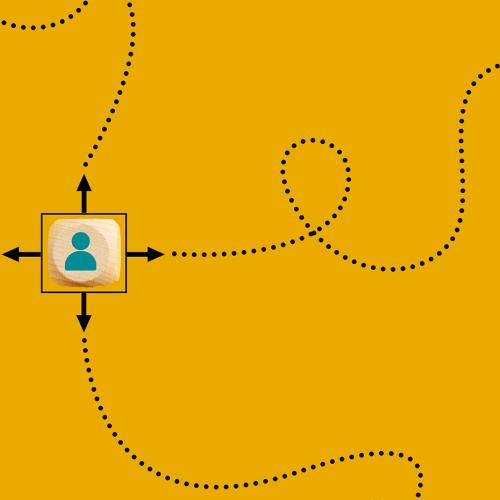New Director Named for Cyber-Physical Systems
Saman Zonouz, Ph.D. shares his perspective and excitement about the role

Saman Zonouz, Ph.D. has been named director of the Cyber-Physical Systems track for Georgia Tech's Online Master of Science in Cybersecurity (OMS Cybersecurity). Zonouz is an Associate Professor at the Schools of Cybersecurity and Privacy (SCP), and Electrical and Computer Engineering (ECE).
As one of the three tracks offered in the OMS Cybersecurity program, Cyber-Physical Systems focuses on the specialized concerns for keeping control of the operations and information embedded in Artificial Intelligence and autonomous technology components and networked systems. Zonouz's research focuses on security and privacy research problems in cyber-physical systems including attack detection and response capabilities using techniques like systems security and control theory.
We sat down with Zonouz to discuss the key role he sees for cyber-physical systems in the field and what he is most excited about for the future.
What originally led you to a career focused on cybersecurity?
I have always been passionate about intellectual challenges and real-world societal impact. Cybersecurity serves both purposes very well! It is essentially an arms race between malicious adversaries and defense solutions that try to protect civilians against various threat vectors.
What is your message to current and prospective students?
I have chosen the academic career because of my passion for interacting with students and addressing real-world cyber-physical security problems that originate in the industry. Cyber-physical systems (CPS) are everywhere, from national critical infrastructures to smart home devices. They also exist in almost every technology, from artificial intelligence and robotics to power grids, biomedical and healthcare, autonomous driving, manufacturing, avionics, the internet of things, and smart buildings.
I am full of energy to work with the Professional Education team to enhance our program for our current and prospective students. I am excited to build multi-disciplinary course offerings covering various cyber-physical security and application domains, while also providing relevant engagement opportunities like summer internships, invited talks by industry professionals, applied course projects on industry-level commercial equipment, and practicum projects that are co-defined/advised by Georgia Tech faculty and an industry professional. I also look forward to surveying our students and industry contacts about their wish lists and job market requirements. These will ensure that useful and relevant skills are acquired by the students, who could enter the job market afterward. We will explore those possibilities and utilize the aforementioned valuable student and industry survey inputs in shaping and refining our program moving forward.
What would you like them to know about the program and about you?
I was a student myself not long ago, and understand the desire and stress to prepare optimally for the job market. I believe our program, powered by strong university-industry engagement and stellar faculty will prepare the students with the required skill sets to enter the industry and address real-world cyber-physical security problems effectively.
How do you see this program supporting the future industry workforce and its leaders?
CPS systems serve core societal functionalities and hence are popular targets for cybersecurity attacks as indicated by several severe catastrophes in the past. Hence, one of the outstanding objectives of industry and governmental agencies is to protect safety-critical CPS platforms. Trustworthy operation of cyber-physical platforms calls for an in-depth understanding of their networked computing assets and physical processes. It requires a workforce with multi-disciplinary expertise in cybersecurity of software, hardware, and various application domains. Our program aims at educating our talented students with cutting-edge cybersecurity technologies and hands-on expertise to lead initiatives that tackle challenging problems in protecting cyber-physical platforms in practice.
What industry challenges do you see in this current environment, and how can OMS Cybersecurity students help solve them?
Over the last decade, sole conventional information technology (IT) cybersecurity has fallen short in the protection of cyber-physical platforms. IT cybersecurity focuses on the protection of computational resources, while cyber-physical involves physical processes that need direct security monitoring and/or control of industrial equipment, assets, processes, and events - this is handled by operational technology (OT) security techniques. Hence, CPS protection calls for new principled and hybrid IT-OT solutions. Our OMS program fills this gap by equipping the students, industry, and Government employees with the necessary skill set from both IT and OT security ends along with hands-on domain expertise.
What are you most excited about moving forward in this role? What do you see as the future of the program?
Clearly, with the increasing number of cybersecurity attacks, the need for an expert workforce in cyber-physical security has been growing remarkably. On the other hand, Georgia Tech, with its rankings, houses the best faculty in the world to address cyber-physical security challenges. Various courses are offered in Georgia Tech's Schools of (first of its kind anywhere) Cybersecurity and Privacy (SCP), Electrical and Computer Engineering (ECE) along with other engineering disciplines. I am super excited to work with our team at Georgia Tech and engage with our industry partners to feed real-world job market needs with Georgia Tech's strengths and course offerings in different cyber-physical domains.

